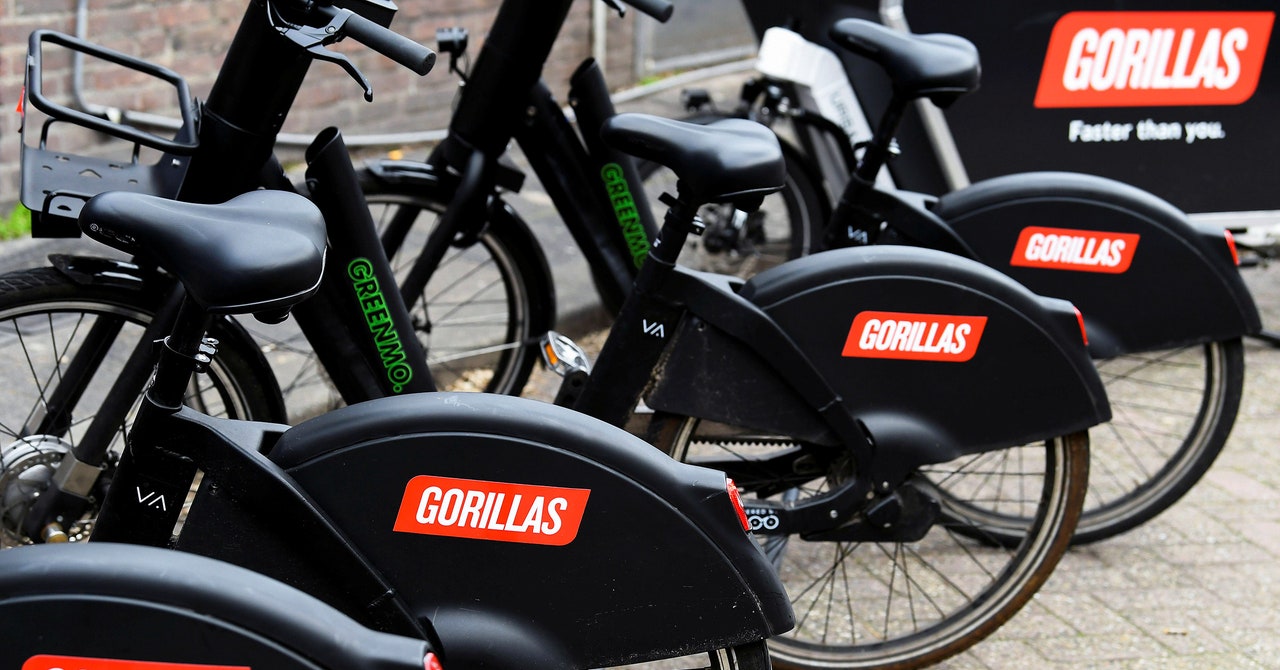In May 2021, Grocery delivery man Zapp moved into a small garage squeezed between red brick apartment buildings on a residential street called Fagelstraat in northwestern Amsterdam. Many locals had never heard of dark stores, the mini warehouses that use grocery apps to ship local deliveries. “We weren’t sure what they were doing or what kind of business it was,” says local resident Alex (not his real name).
In less than a year, that tiny Fagelstraat garage has become an extreme example of how dark shops can clash with local neighbors. Alex, who has been living on the streets for seven years and has requested anonymity to avoid further conflict with drivers, says there are now 10 to 15 deliveries a day and giant trucks regularly block the narrow road. “It’s a 24-hour business,” he says, “so riders come in and out late at night and early in the morning. At 2 a.m. I often have people standing in front of my window, smoking and talking really loudly while they take a break.” After a month of this, riders and residents began arguing as tensions boiled over, Alex says. “There have been a few cases where I almost got into a fight,” he says. “A [rider] was all over my face. It was pretty scary.”
In the past year, the spread of dark shops has accelerated rapidly as grocery delivery apps Gorillas, Getir, Flink and Zapp compete with each other to dominate the Dutch market. In January there were 31 dark stores in Amsterdam alone. The Netherlands appeals to these companies because the country is small, densely populated and flat, making it easy for their couriers to operate, says Yara Wiemer, an analyst at research and consultancy firm Kantar. Demand is also rising. According to Wiemer, the number of Dutch consumers using grocery delivery apps has more than tripled to 700,000 between 2021 and January 2022. But as the four apps compete for dark retail space in residential areas so they can provide faster deliveries, complaints about noise, bikes blocking sidewalks and increased traffic across the country have become commonplace.
In Amsterdam, those complaints also accuse dark shop workers of intimidation, sexual harassment and engaging in physical combat, and mobilize the city’s residents to kick delivery apps out of their neighborhoods.
Fagelstraat has become the loudest example of a neighborhood mobilizing against a dark shop. The street has petitioned and launched its own Instagram page to document the disruption. A resident named Elisabeth says that one night last fall, when she told staff at the Fagelstraat Zapp dark store to keep the noise down, a person in a uniform — worn by both horse riders and warehouse workers — told her to stop. complain if he would send his friends to her apartment. “They have not indicated what they are going to do, but of course it is very threatening,” says Elisabeth. She describes being followed home several times late at night by people who later entered Zapp’s dark shop and says other female residents have complained of sexual harassment and catcalling.
Steve O’Hear, VP of strategy at Zapp, says the company has a zero-tolerance policy on sexual harassment and was “surprised” to learn of the aggression between residents and drivers in the company’s dark Fagel Street store. “From the beginning, we have met residents regularly and those conversations have remained largely cordial,” he says.

